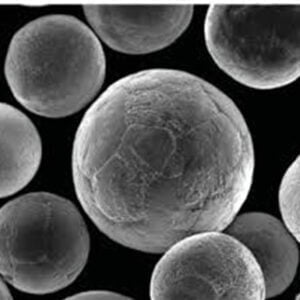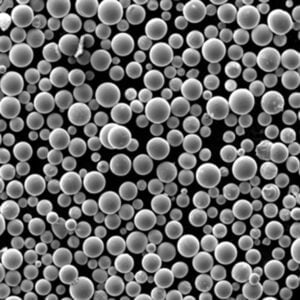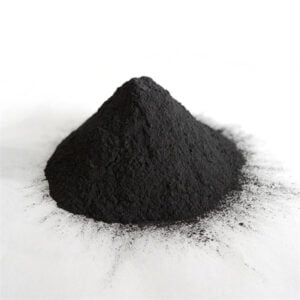Plasma-Rotating Electrode Process (PREP)
Table of Contents
Overview of Plasma-Rotating Electrode Process
The Plasma-Rotating Electrode Process (PREP) is an advanced method for producing high-quality metal powders with exceptional purity and uniformity. These powders are crucial for various applications, including additive manufacturing, aerospace components, and medical implants. PREP involves melting the end of a rotating metal rod using a plasma arc, causing droplets to be ejected and solidified into fine powders. This process is renowned for producing spherical particles with excellent flowability and packing density.
Key Details of Plasma-Rotating Electrode Process:
- Process: Utilizes a plasma arc to melt a rotating metal rod.
- Output: High-purity, spherical metal powders.
- Applications: Additive manufacturing, aerospace, medical implants, etc.
- Advantages: High purity, excellent flowability, uniform particle size.
- Limitations: High cost, complex equipment, limited to specific metals.
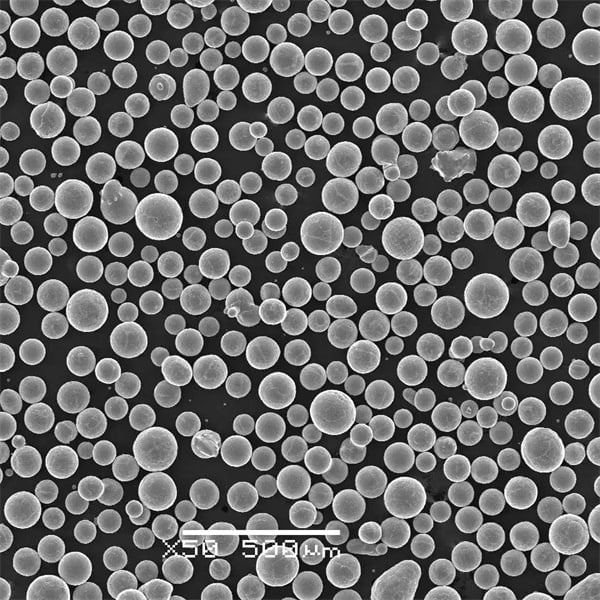
Types of Metal Powders Produced by PREP
Common Metal Powders:
| Metal Powder | Composition | Properties | Characteristics |
|---|---|---|---|
| Titanium (Ti) | Pure Ti or Ti-6Al-4V | High strength, corrosion resistance | Biocompatible, lightweight |
| Nickel (Ni) | Pure Ni or Ni-based superalloys | High temperature resistance | Excellent creep resistance |
| Cobalt (Co) | Pure Co or Co-Cr alloys | Wear resistance, strength | Used in dental and orthopedic implants |
| Aluminum (Al) | Pure Al or Al-Si alloys | Lightweight, good conductivity | Excellent machinability |
| Stainless Steel | Various SS grades (304, 316, etc.) | Corrosion resistance, strength | Versatile, widely used |
| Copper (Cu) | Pure Cu | Excellent electrical conductivity | Used in electrical components |
| Tungsten (W) | Pure W or W alloys | High density, heat resistance | Used in aerospace and defense |
| Iron (Fe) | Pure Fe or Fe-based alloys | Magnetic properties, strength | Widely used in engineering applications |
| Zirconium (Zr) | Pure Zr or Zr alloys | Corrosion resistance, biocompatible | Used in nuclear reactors and medical |
| Molybdenum (Mo) | Pure Mo or Mo alloys | High temperature strength | Used in aerospace and electronics |
Applications of Plasma-Rotating Electrode Process
Typical Applications:
| Application | Description |
|---|---|
| Additive Manufacturing | Producing complex, high-strength components layer by layer with metal powders |
| Aerospace Components | Manufacturing lightweight, high-performance parts for aircraft and spacecraft |
| Medical Implants | Creating biocompatible implants with precise geometries, such as dental and orthopedic devices |
| Automotive Industry | Producing lightweight, durable parts for vehicles |
| Energy Sector | Manufacturing components for nuclear reactors and power plants |
| Electronics | Producing conductive parts and heat sinks for electronic devices |
| Tooling and Molds | Creating durable, high-precision tooling and molds for various industries |
Specifications, Sizes, Grades, and Standards
Detailed Specifications:
| Metal Powder | Sizes (µm) | Grades | Standards |
|---|---|---|---|
| Titanium (Ti) | 15-45, 45-90, 90-150 | Grade 1, Grade 2 | ASTM B348, ASTM F67 |
| Nickel (Ni) | 10-50, 50-100 | Inconel 625, 718 | ASTM B883 |
| Cobalt (Co) | 10-45, 45-100 | CoCrMo, CoCrW | ASTM F75, ASTM F1537 |
| Aluminum (Al) | 10-50, 50-150 | 6061, 7075 | ASTM B928, ASTM B209 |
| Stainless Steel | 15-45, 45-90 | 304, 316L | ASTM A276, ASTM A240 |
| Copper (Cu) | 15-45, 45-90 | C10100, C11000 | ASTM B152, ASTM B187 |
| Tungsten (W) | 10-45, 45-150 | Pure W | ASTM B777 |
| Iron (Fe) | 10-50, 50-100 | Pure Fe, FeSi | ASTM A848 |
| Zirconium (Zr) | 15-45, 45-90 | Zr702, Zr705 | ASTM B550 |
| Molybdenum (Mo) | 10-45, 45-100 | Pure Mo | ASTM B387 |
Suppliers and Pricing Details
Metal Powder Suppliers:
| Supplier | Metal Powders Offered | Pricing (per kg) | Additional Services |
|---|---|---|---|
| AP&C | Ti, Ni, Co, Al, SS, Cu, W, Fe, Zr | $150 – $500 | Custom particle size distribution |
| GKN Additive | Ti, Ni, Co, Al, SS, Cu, W, Fe, Zr | $100 – $450 | R&D support, custom alloy development |
| Carpenter Technology | Ti, Ni, Co, Al, SS, Cu, W, Fe, Zr | $120 – $480 | Material testing, certification |
| LPW Technology | Ti, Ni, Co, Al, SS, Cu, W, Fe, Zr | $130 – $490 | Powder recycling, characterization |
| Höganäs | Ti, Ni, Co, Al, SS, Cu, W, Fe, Zr | $110 – $470 | Application engineering, support |
Advantages and Limitations of Plasma-Rotating Electrode Process
Pros and Cons:
| Aspect | Advantages | Limitations |
|---|---|---|
| Particle Shape | Produces spherical particles with high flowability and packing density | Limited control over particle size distribution |
| Purity | High-purity powders due to the inert atmosphere and minimal contamination | High cost of production and equipment |
| Uniformity | Uniform particle size and composition | Complexity in handling and maintenance of the equipment |
| Versatility | Suitable for a wide range of metals and alloys | Not suitable for all metals; some may not form spherical particles |
| Quality | Consistent quality with minimal impurities | Initial setup and operational costs can be prohibitive for small-scale production |
| Applications | Widely used in high-tech applications requiring precision and reliability | Limited to industries that can justify the higher costs |
Detailed Analysis of Metal Powder Models
Titanium (Ti) and Titanium Alloys:
Titanium powders produced by PREP, such as pure titanium (Grade 1) and titanium alloys (Ti-6Al-4V), are highly valued for their high strength-to-weight ratio, corrosion resistance, and biocompatibility. These properties make them ideal for aerospace components, medical implants, and high-performance automotive parts. Titanium powders are characterized by their excellent flowability, which is crucial for additive manufacturing processes.
Nickel (Ni) and Nickel-Based Superalloys:
Nickel powders, including those of Inconel 625 and 718, are essential for high-temperature applications due to their exceptional resistance to oxidation and creep. These powders are widely used in the aerospace industry for turbine blades and other components that must withstand extreme conditions. The high purity and uniformity of PREP-produced nickel powders ensure optimal performance in these demanding environments.
Cobalt (Co) and Cobalt-Chromium Alloys:
Cobalt powders, particularly CoCr and CoCrMo alloys, are renowned for their wear resistance and strength. These properties make them suitable for medical implants, such as dental and orthopedic devices, where durability and biocompatibility are critical. The spherical shape and high density of PREP-produced cobalt powders contribute to their excellent performance in these applications.
Aluminum (Al) and Aluminum Alloys:
Aluminum powders, such as 6061 and 7075 alloys, are prized for their lightweight and good conductivity. These powders are extensively used in the automotive and aerospace industries to produce lightweight components that enhance fuel efficiency and performance. The fine, spherical particles produced by PREP ensure superior flowability and packing density, making them ideal for additive manufacturing.
Stainless Steel:
Stainless steel powders, including grades 304 and 316L,
offer a balance of strength, corrosion resistance, and versatility. These powders are used across various industries, from construction to medical devices, due to their durability and ease of fabrication. The PREP process ensures that the stainless steel powders have consistent quality and uniform particle size, which are essential for reliable performance.
Copper (Cu) and Copper Alloys:
Copper powders, such as C10100 and C11000, are essential for their excellent electrical conductivity and thermal properties. These powders are widely used in electronics, electrical components, and heat exchangers. The high purity and spherical shape of PREP-produced copper powders enhance their performance in these applications, ensuring efficient conductivity and heat transfer.
Tungsten (W) and Tungsten Alloys:
Tungsten powders are known for their high density and heat resistance, making them suitable for applications in the aerospace and defense industries. The spherical particles produced by PREP ensure uniform packing and flowability, which are crucial for manufacturing high-performance components such as rocket nozzles and radiation shielding.
Iron (Fe) and Iron-Based Alloys:
Iron powders, including pure iron and iron-silicon alloys, are widely used in engineering applications due to their magnetic properties and strength. These powders are essential for producing components such as magnetic cores and structural parts. The PREP process ensures high purity and uniform particle size, which are critical for consistent performance.
Zirconium (Zr) and Zirconium Alloys:
Zirconium powders, such as Zr702 and Zr705, are valued for their corrosion resistance and biocompatibility. These properties make them ideal for medical applications, including implants and surgical instruments, as well as for use in nuclear reactors. The spherical shape and high purity of PREP-produced zirconium powders ensure reliable performance in these critical applications.
Molybdenum (Mo) and Molybdenum Alloys:
Molybdenum powders are prized for their high-temperature strength and conductivity. These powders are used in the aerospace and electronics industries for components that must withstand extreme conditions. The PREP process produces molybdenum powders with uniform particle size and high purity, ensuring their effectiveness in demanding applications.
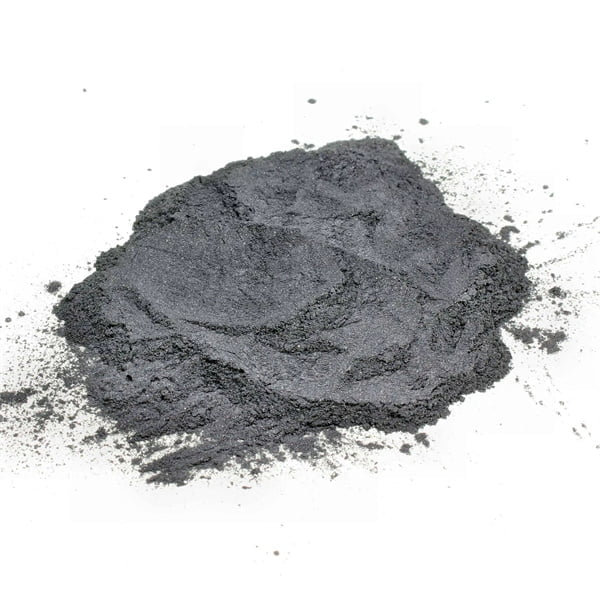
FAQs
| Question | Answer |
|---|---|
| What is the Plasma-Rotating Electrode Process (PREP)? | PREP is a method for producing high-purity, spherical metal powders by melting the end of a rotating metal rod using a plasma arc. |
| What metals can be processed using PREP? | PREP can process a wide range of metals, including titanium, nickel, cobalt, aluminum, stainless steel, copper, tungsten, iron, zirconium, and molybdenum. |
| What are the advantages of using PREP for metal powder production? | PREP offers high purity, uniform particle size, excellent flowability, and the ability to produce spherical particles, making it ideal for high-tech applications. |
| What are the limitations of PREP? | The process is expensive, requires complex equipment, and is not suitable for all metals. Additionally, controlling particle size distribution can be challenging. |
| How are PREP-produced powders used in additive manufacturing? | These powders are used in additive manufacturing to create complex, high-strength components layer by layer, offering precision and reliability in critical applications. |
| Why are spherical particles important in metal powders? | Spherical particles ensure better flowability and packing density, which are crucial for consistent performance in applications such as additive manufacturing and powder metallurgy. |
| Can PREP be used for producing metal powders for medical implants? | Yes, PREP-produced powders such as titanium and cobalt-chromium alloys are commonly used for creating biocompatible medical implants with precise geometries. |
| What are the key applications of PREP-produced nickel-based superalloys? | Nickel-based superalloys produced by PREP are used in high-temperature applications, such as turbine blades in the aerospace industry, due to their excellent oxidation and creep resistance. |
| How does the cost of PREP-produced powders compare to other methods? | PREP-produced powders are generally more expensive due to the high cost of the process and equipment, but they offer superior quality and performance for critical applications. |
| Are there any environmental concerns with the PREP process? | PREP is performed in an inert atmosphere, which minimizes contamination and environmental impact, but the energy-intensive nature of the process can be a concern. |
Conclusion
The Plasma-Rotating Electrode Process (PREP) stands out as a premier method for producing high-quality metal powders essential for various advanced applications. From aerospace components to medical implants, the purity, uniformity, and spherical shape of PREP-produced powders ensure superior performance and reliability. While the process comes with high costs and complex equipment requirements, its advantages make it a valuable technology in industries where precision and quality are paramount. As technology advances, further innovations in PREP are likely to enhance its efficiency and broaden its applicability, solidifying its role in the future of material science and engineering.
know more 3D printing processes
Share On
MET3DP Technology Co., LTD is a leading provider of additive manufacturing solutions headquartered in Qingdao, China. Our company specializes in 3D printing equipment and high-performance metal powders for industrial applications.
Inquiry to get best price and customized Solution for your business!
Related Articles
About Met3DP
Recent Update
Our Product
CONTACT US
Any questions? Send us message now! We’ll serve your request with a whole team after receiving your message.

Metal Powders for 3D Printing and Additive Manufacturing
COMPANY
PRODUCT
cONTACT INFO
- Qingdao City, Shandong, China
- [email protected]
- [email protected]
- +86 19116340731






